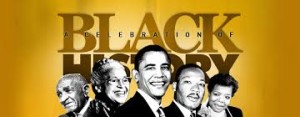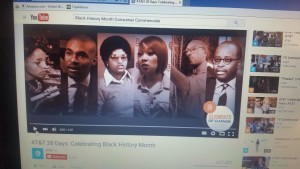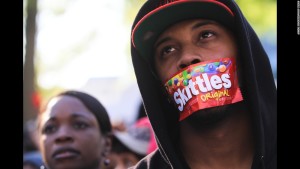For as long as I can remember Black History Month was celebrated in the United States in an educational environment as well as by major consumer brands and media outlets on television and radio. During the late 90’s and early 00’s more commercials would showcase African American actors selling big brand name products to American consumer’s during the month of February. In addition, news outlets would recognize national, regional and local hero’s from the African American community that had achieved over-whelming accomplishments not only for African American community, but American citizens as a whole.
Today, Black History Month is almost not taken seriously by major brands or television networks. Since America has elected an African-American President, the push to showcase African-American consumers in advertisement and television specials during the month of February has dwindled down to almost nothing. The Disney XD Channel and AT&T were the only two brands that created new television commercials for the 2016 Black History Month Celebration. Why is that?
In the last year with the “Black Lives Matter” campaign, that began after young African-American citizens were being gunned down, chocked and beaten to death from the streets of Chicago, to St, Louis and Florida by over aggressive police officers, has been extremely relevant with all the major news outlets. But why can’t the positive attributes in the African-American community continue to be celebrate during the month of February? Where are the marketing dollars from the big brands to help push this agenda through? Clearly the manufactures of “Skittles” have profited from free publicity it gained in the Travon Martin case, but has yet to create any type of campaign or co-partnership with a national children’s organization to help educate young teenagers and keep them safe. But I have digressed.
According to the NAACP, Negro History Week was originally started by Carter G. Woodson, the African-American historian, author, journalist and father of African-American History, to fill a void in Americas’ history books. Today, there is a large group of African-Americans in the United States that ask the question, why can’t we celebrate Black History Every Day? According to well-known actor and rapper Nick Cannon, “Anytime we can celebrate black cultural, I’m with it.” “We make black history every day, so why shouldn’t we celebrate it?’ That’s why the media and the big brands should re-think how they handle news stories and marketing campaigns not only in February but all year round.
As February 2016 comes to a close, American citizens are somewhat reminded about the achievements of numerous African American Inventors, Innovators and Civil Liberties Movement Leaders in the United States. Now with the invention of social media, very well-known historical data and unknown or under-reported African-American history information can be accessed by history buffs and students on a daily basis. Web-sites like “NAACP “, “Because of Them We Can” and “We Are Black History” will continue to tell the true stories of our fore fathers and how they helped build America in to what she is today, a symbol for freedom and equality for all. Maybe next year big brands and the media outlets will create marketing communication plans that collaborate with social media outlets like “Because of Them We Can” and create positive commercials that can be shown not only in February, but all year round.
References
Brown, S. (2016). Social Media Takes Black History Month Beyond The Classroom. Retrieved from: http://www.thewashingtonpost.com/social-media-takes-black-hisory-month-beyond-the-classroom
Gebreyes, R. (2016). Nick Cannon: We Make Black History Every Day” Retrieved from: http://www.huffingtonpost.com/entry/nick-cannon-we-make-black-history-every-day_us_56cf6010e4b0320bf7602bd?utm_hp_ref=black-history-month
Grinberg, E. (2016). Was February 2016 the Best Black History Month Ever? Retrieved from: http://www.cnn.com/2016/02/26/living/best-black-history-month-2016-feat/
NAACP. (2016). Black History Month. Retrieved from: http://www.naacp/black-history-month




2 Responses to What Happened To The Black History Month Celebrations?